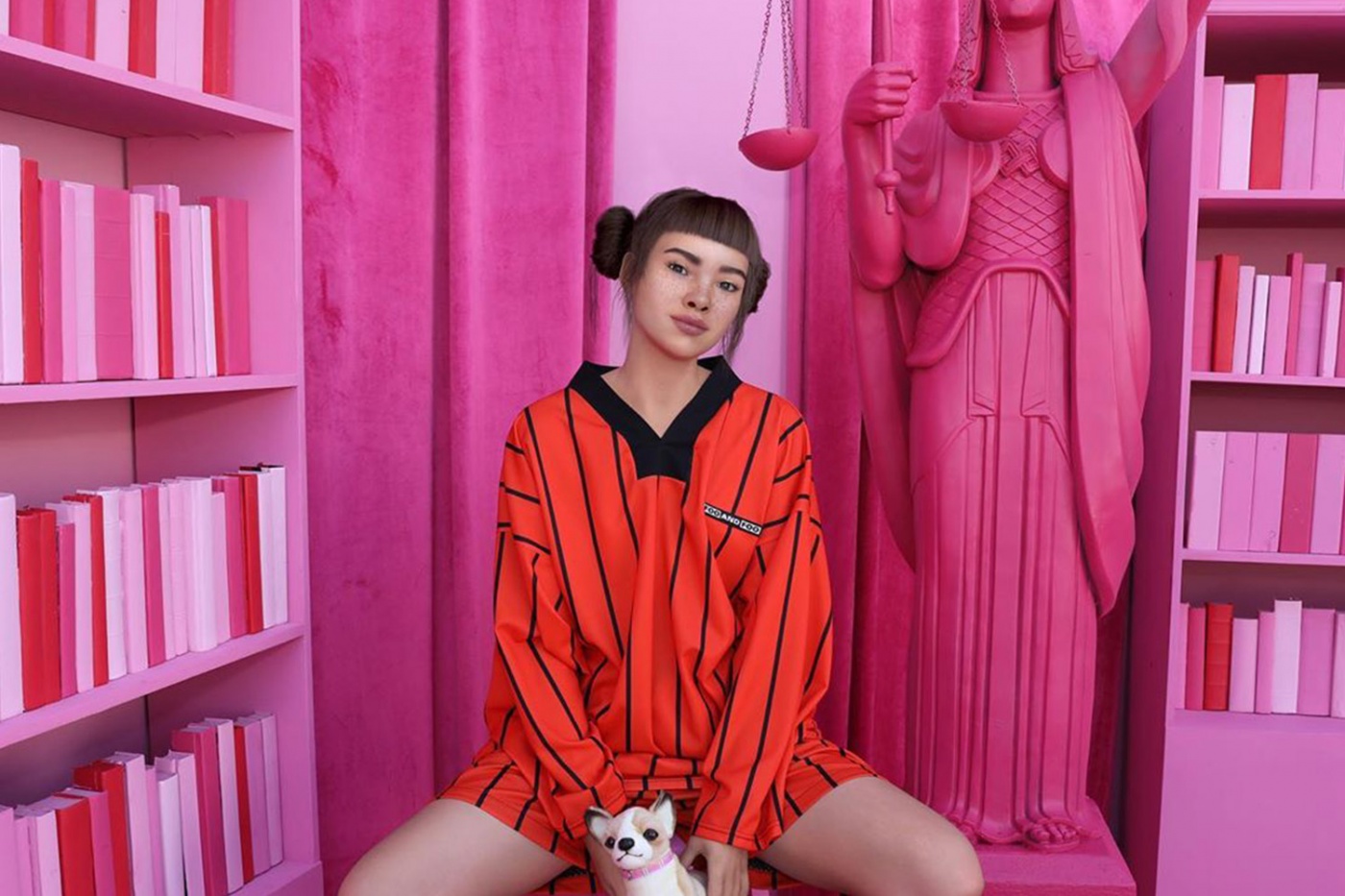Virtual Influencer Lil Miquela’s Rise Might Portend Our Fall
A month ago, Calvin Klein released a series of ads through their “I Speak My Truth” campaign and amongst the various celebrities proclaiming whatever the director told them to say, there was Bella Hadid snogging Lil Miquela. Outrageous! Countless others have already said their piece about the queerbaiting, and the brand itself is in full #pride marketing mode so that’s blown over. It’s Lil Miquela, specifically that I’m interested in.
“Disrupt” is a word you’ll hear a lot in start-up circles. Every new entrepreneur seems to promise that they’re going to disrupt their chosen industry in their business plans but as the vastness of the start-up graveyard can attest, that’s quite a tall order. It’s no wonder they’re champing at the bit to disrupt and reap the rewards, our entire human history is testament to how powerful and lucrative disruption is. So many now fear automation and AI taking over our jobs, and not just the blue-collar ones either. Doctors and lawyers, they’re coming for you too.
That appears to be the case for the influencer. Lil Miquela is riding the current generation’s wave of shitty trap music and self-actualisation filtered through baddie aesthetics. That’s still in for now and when trends pivot, virtual influencers like her will have an easier time evolving since she’s not actually made of flesh. If heroin becomes popular again, can the Kardashians shed their centaur-shape in quick time? Perhaps I’m underestimating the powers of cosmetic surgery and Photoshop. Consider this then: being properly soulless, virtual influencers are even better at being malleable according to a brand’s direction. No issue of going off-script compared to a fallible human.
People taking to Lil Miquela may just be another sign of the youth’s love for post-irony or maybe, it’s the early symptoms of influencer fatigue. In the various niches that influencers occupy there exists drama of some kind that threatens the concept of an influencer being a more “authentic” or “relatable” celebrity that’s just not merely advertising crap to you. The beauty community is no stranger to tomfoolery, vegans have influencers in droves being exposed as non-vegan or tearfully explaining why they aren’t vegan anymore, and the fitness community is filled with roided dudes blasting and cruising under the guise of natty hard work and inspiration. I’m sure there are issues in the clean house influencer community. Well, there is. Maybe, virtual influencers being blatantly unreal makes them more acceptable than the next blonde lady promising to show you a better way to live if you only purchase her supplements at 15% off with the code BLONDELADY.
It’s still early days for the virtual influencer, and there are still legions of hungry up-and-coming influencers ready to do whatever it takes to grab the spotlight. But the bigwigs are certainly taking notice with Lil Miquela’s creator company now being worth $125 million and there are a slew of other projects that don’t necessarily come in a hyper-realistic form like ones focused on machine-learning, remember the disastrous Microsoft chatbot turned Nazi. All this is a lucrative potential for marketing. If you can take the fleshy unpredictable content creators out of the picture, you can profit more. Think about what that would mean for the production of art in any form.
And then there is the very sinister phenomenon of deepfakes where convincing fake audio and videos are made using AI. In a world where your uncle still can’t tell that the hoax he read about from Facebook is not real, deepfakes just took fake news to the next level. Deepfake anything you like, generate fear and inspire people to hoard specific products for an impending doomsday or vote against their interests. Deepfake scenarios to clamp down on the openness of the Internet and let corporations do as they like without dissent. Or just deepfake videos of a Kardashian’s new beauty regime that’s guaranteed to make you look good too. But good news for Christian Bale perhaps, he no longer has to physically starve and gain for his next role. Just deepfake that character, bro.
In this capitalist economy, we are quite cognizant of how replaceable we are in the workplace and the prevailing culture of self-improvement and optimisation seeks to mitigate that very fear whilst exploiting it to sell the remedies. What if, in an optimistic future where we are all replaced by robots and AI in the workplace, we land up in a Fully Automated Luxury Communism utopia that some tech bros are espousing, and end up as the ultimate consumer? And all we have to do with our UBI and the money we earn from all the hobbies we can monetise, is spend. Or let’s put that aside, what if we do get replaced and the more privileged amongst us merely move to some higher-level work while the rest of us must work even harder to afford anything, and this reaches a critical point. What if the consumer becomes the consumed? Do virtual influencers eventually dream of virtual consumers? Will all that’s left of human civilisation be in the form of endless loops of commercials played to each other?
Image Credit: Lil Miquela’s Instagram


